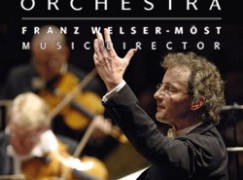An orchestra expects its audience to grow younger
mainCleveland has plans for rejuvenating the audience. In an economy worse than Detroit’s that is quite a challenge, but executive director Gary Hanson and artistic director Franz Welser-Moest have some good ideas and a keen sense of mission. They have also found the money.
Cleveland’s leaders talked about the future to the New York Times video unit. Big mistake. The Times makes films like the French make tea – with an arrant over-confidence that masks rank incompetence.
Hard to imagine that an organisation headed by Mark Thompson, former BBC chief, can put out such numbskull, Fifties-style pap.






Comments